The Nature Positive Solutions initiative collaborates with local entrepreneurs and organizations to promote traditional polycrop systems (shagra) aligned to nature-positive solutions, and establish value chains that offer sustainable alternatives for farmers (such as agroecotourism), moving out of previous practices that use to focus merely in crop-specific productivity.
By halting the erosion of the páramo ecosystem and developing nature-positive value chains that attribute economic value to biodiversity, local farmers enhance their income while preserving their natural resources and traditional diets.
Contact: Marleni Ramirez, Alliance of Bioversity International and CIAT, m.ramirez(at)cgiar.org
Operating Location: Cumbal, Nariño department
Area of Operation: 142,000 hectares
Coordinates: 0.9063° N 77.7167° W
Communities: Pastos Indigenous people
Description of the Area: The department of Nariño, part of Colombia’s Pacific region, borders Cauca, Ecuador, Putumayo, the Pacific Ocean, and covers 33,268 km² in the Andes. Nariño is crucial for water conservation, containing 7 protected areas (142,000 ha). It has rich agricultural biodiversity, including potatoes, ulluco, mashua, coffee, and cacao.
Nariño faces risks of poverty and food insecurity, with significant portions of the population experiencing unmet basic needs and moderate to severe food insecurity. Environmental degradation from deforestation, overgrazing and improper land use is significant. Indigenous practices, such as “shagras,” are vital for food security and maintaining agricultural biodiversity, but face threats from expanding livestock farming.





Deforestation and agricultural expansion pose significant challenges to wild ecosystems in Colombia (and South America). At the border of the páramo ecosystem in Cumbal, this threat primarily arises from the expansion of grazing land and agricultural practices employed by livestock, which rapidly degrade the páramo and its biodiversity.
In Cumbal, Nature+ draws on traditional knowledge of intercropping systems and agrobiodiversity to promote climate-resilient agriculture and profitable value chains.
The initiative fosters the conservation of native vegetation, which acts as a natural filter for pollutants. This not only improves air quality for local communities but also contributes to a healthier global atmosphere.
By protecting watersheds and reducing soil erosion, the initiative safeguards clean and reliable water supplies for local communities. This is especially crucial in the Nariño highlands, a vital water conservation area for Colombia.
Sustainable agricultural practices promoted by the initiative improve soil health. This leads to increased fertility, better crop yields, and reduced land degradation, ensuring long-term productivity.
Protecting native plants is a cornerstone of the initiative. In Cumbal, efforts are focused on both biodiversity in the fields and on the table. By promoting polycropping systems, the initiative aims to safeguard biodiversity while simultaneously improving diets.
The initiative prioritizes supporting indigenous communities and women promoting sustainable livelihoods. This empowers local people, reduces poverty, and fosters a more equitable future where environmental protection and human well-being go hand-in- hand.
The initiative combats climate change by promoting sustainable land management practices and conserving wild ecosystems, like the páramo. This reduces carbon emissions, improves air quality, and mitigates the effects of climate change on the region.
The CGIAR Initiative on Nature-Positive Solutions carries out its activities in partnership with numerous international and local organizations in order to leverage collaboration and the sharing of knowledge and skills and achieve the maximum possible impact. In each region several CG centers take part in the activities by contributing their expertise for the success of the entire initiative.
The project consists of interventions across five impact areas. Each intervention is on a path of continuous improvement, generating impacts across six dimensions: air, water, soil, biodiversity, equity, and climate. Collectively, these data points can be represented as an EBF ImpacTracker.
TECHNICAL NOTE
This initiative is ongoing. Endline benefit calculations are understood as “potential impacts” and not for use as a final report. Click on the icons to learn more about each impact area’s contributions or scroll down for additional details. Total scores are tabulated from the output of each ecological benefit.
Primary positive impacts generated by the Nature-Positive Solutions Initiative of the CGIAR on poverty reduction, food security, gender and social inclusion, climate mitigation and adaptation and environmental health.
Location: Cumbal, Nariño department
Duration: 2022 – 2026
Interventions: With training interventions dedicated to the expansion of sustainable entrepreneurial activities – such as agroecotourism and circular bioeconomy businesses – the Initiative fights poverty and creates sustainable jobs in Cumbal.
Location: Cumbal, Nariño department
Duration: 2022 – 2026
Interventions: With training interventions dedicated to the expansion of sustainable entrepreneurial activities – such as agroecotourism and circular bioeconomy businesses – the Initiative fights poverty and creates sustainable jobs in Cumbal.
Location: Cumbal, Nariño department
Duration: 2022 – 2026
Interventions: Gender equality interventions focus on promoting polycropping systems and agroecotourism as an economic opportunity for local women to increase their livelihood and decision-making power in their communities.
Location: Cumbal, Nariño department
Duration: 2022 – 2026
Interventions: Adaptation and mitigation of climate change are realized through interventions for crop diversification and improvement of dairy cow breeding practices. On the one hand, agrobiodiversity helps reduce the risk of crop failure, while on the other, more sustainable breeding reduces the degradation of ecosystems.
Location: Cumbal, Nariño department
Duration: 2022 – 2026
Interventions: Environmental health and biodiversity interventions in Cumbal see sustainable farming and polycropping go hand in hand to conserve the genetic diversity of local crops – especially indigenous varieties of potatoes and tubers – and safeguard wild ecosystems from overgrazing and conversion – first and foremost the delicate Páramo.
About
The Nature-Positive Solutions platform is produced by The Lexicon with support from CGIAR, the Alliance of Bioversity International and CIAT, IWMI, IFPRI and CIP. Nature-Positive Solutions balance the needs of people and the planet, ensuring long-term ecological benefits, food security and livelihoods.
Team
Lexicon of Impacts is based on the Ecological Benefits Framework (EBF). This new paradigm provides a foundational architecture to radically transform global carbon, biodiversity, and ecological benefits markets. Coordinating financial institutions, UN agencies, NGOs, companies, and catalytic capital will bring attention to—and help create—a shared pathway for accelerated solutions, providing economic support for the people and projects that need it most.
This website was built by The Lexicon™, a 501(c)(3) tax-exempt nonprofit organization headquartered in Petaluma, CA.
Check out our Privacy Policy, Cookie Policy, and Terms of Use.
© 2024 – Lexicon of Impacts™